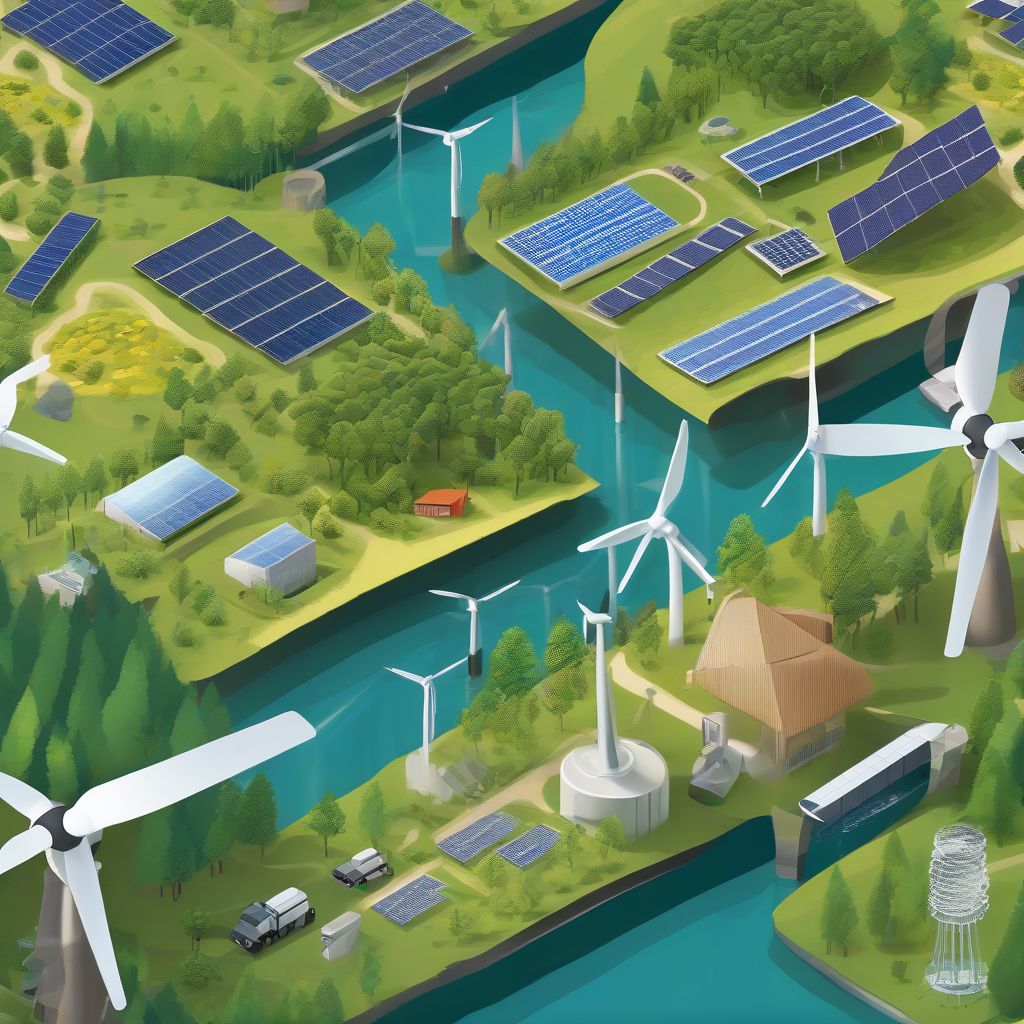Imagine a world powered by the sun, wind, and water – a world free from the choking grip of fossil fuels. It’s not a utopian dream, but a rapidly approaching reality thanks to the remarkable rise of renewable energy. But how exactly are these sources making a difference, and why is this shift so crucial for our planet’s health? Let’s dive in and explore the powerful impact of renewable energy on our environment.
Reducing Greenhouse Gas Emissions: A Breath of Fresh Air for the Planet
The biggest advantage of renewable energy is its ability to drastically reduce greenhouse gas emissions. Unlike fossil fuels, which release harmful pollutants like carbon dioxide when burned, renewable sources generate electricity with little to no emissions. This is a game-changer in the fight against climate change, as these emissions are the primary drivers of global warming and its devastating consequences.
Solar Power: Harnessing the Sun’s Energy
Solar panels convert sunlight directly into electricity, a process that produces zero emissions. As Dr. Emily Carter, a leading energy researcher, puts it, “Solar energy offers a clean and abundant pathway to a sustainable future.” This clean energy source helps reduce our reliance on fossil fuels, mitigating their negative impact on the environment.
Wind Energy: Tapping into the Power of the Breeze
Wind turbines capture the kinetic energy of the wind and convert it into electricity. This process is equally clean, emitting no harmful greenhouse gases. The growth of wind energy farms, both onshore and offshore, contributes significantly to reducing our carbon footprint.
Hydropower: Harnessing the Force of Water
Hydropower uses the flow of water to generate electricity. While it has a larger environmental footprint than solar or wind due to dam construction and potential impacts on aquatic ecosystems, it still represents a significantly cleaner energy source than fossil fuels, reducing reliance on them and subsequently reducing pollution.
 Renewable Energy Helping the Environment
Renewable Energy Helping the Environment
Protecting Air and Water Quality: A Cleaner, Healthier World
Renewable energy not only combats climate change but also improves air and water quality. Fossil fuels are notorious for releasing pollutants that contribute to smog, acid rain, and respiratory illnesses. By transitioning to clean energy, we can breathe easier, literally.
Cleaner Air for Healthier Communities
The absence of harmful emissions from renewable energy sources translates to cleaner air in our communities. This is particularly beneficial for vulnerable populations like children and the elderly, who are more susceptible to respiratory problems.
Protecting Water Resources from Contamination
Fossil fuel extraction and transportation can contaminate water sources through spills and leaks. Renewable energy avoids these risks, safeguarding our precious water resources.
Conserving Natural Resources: A Sustainable Approach
Fossil fuels are finite resources, and their extraction can have devastating environmental impacts, including habitat destruction and deforestation. Renewable energy sources, on the other hand, are virtually inexhaustible.
The Sun, Wind, and Water: Infinite Resources
Harnessing the power of the sun, wind, and water ensures a sustainable energy supply for generations to come. This reduces our dependence on finite resources and minimizes the environmental damage associated with their extraction.
Protecting Biodiversity: Preserving Natural Habitats
By reducing the need for fossil fuel extraction, renewable energy helps protect natural habitats and biodiversity. This is crucial for maintaining the delicate balance of our ecosystems.
Economic Benefits: A Green and Growing Economy
The transition to renewable energy is not only environmentally beneficial but also economically advantageous. It creates new jobs in the clean energy sector, stimulates innovation, and reduces our dependence on volatile fossil fuel markets.
Job Creation in the Renewable Energy Sector
The renewable energy industry is a rapidly growing sector, creating numerous jobs in manufacturing, installation, maintenance, and research. This contributes to a stronger and more sustainable economy.
Energy Independence: Reducing Reliance on Fossil Fuels
By developing our own renewable energy resources, we can reduce our dependence on foreign oil and stabilize energy prices. This strengthens our national security and protects us from global energy market fluctuations.
Conclusion: Embracing a Sustainable Future
The benefits of renewable energy are undeniable. From mitigating climate change and improving air and water quality to conserving natural resources and boosting the economy, the shift to clean energy is essential for a sustainable future. As individuals, we can make a difference by supporting renewable energy initiatives, advocating for policy changes, and making conscious choices in our own energy consumption. Let’s work together to build a cleaner, healthier, and more sustainable world for generations to come. Share your thoughts in the comments below and let us know how you’re contributing to a greener future! Explore more about sustainable living on our website and join the movement towards a cleaner planet!



